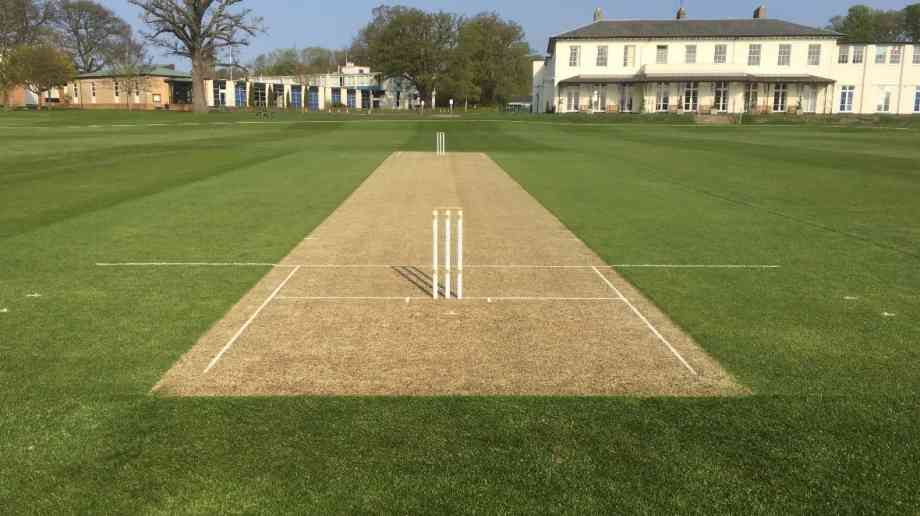
Showcasing the skills behind sports grounds
A new Pitch Grading Framework from the Institute of Groundsmanship will allow schools to showcase the quality of their sports turf facilities, as well as the expertise of their grounds teams
A selection of independent schools are soon to take part in a nationwide pilot scheme being carried out by The Institute of Groundsmanship (IOG) as part of the launch of its new Pitch Grading Framework.
The involvement of these schools will help inform the Pitch Grading Framework from a schools’ perspective before the scheme is rolled out.
The concept has been supported by all National Governing Bodies of sport and aims to boost industry standards for grounds facilities, improve the knowledge within the sector and set benchmarks for playing surfaces. The framework will not only highlight the level of quality of an individual playing surface but also the appropriate training and the recommended levels of turf management qualifications, needed by the ground’s management team who maintain it.
This will allow a new way for schools to showcase quality sports turf facilities and recognise the skills and expertise of its grounds teams while adding a new dimension to attract potential students and their parents.
Natural turf sports pitches standards will be graded from levels 0 to 5, with 5 being ‘elite’ status. Within this Framework, grounds teams are advised to have a certain level of qualifications to obtain certification for each grade. Each level is complemented by a training and qualification recommendation framework that features specific and accurately blended learning, delivered both online and in the traditional format.
Geoff Webb, CEO of the IOG, commented: “The Pitch Grading Framework delivers a much-needed requirement in the industry. It creates a standard for facilities to be compared against, which will be of huge benefit to schools when attracting new students and providing the students with sports pitches to excel on. In a similar style to OFSTED, schools will be able to promote their rating and highlight the standards of its sports and green-space facilities, as well as the knowledge and expertise among its team.”
Audits and training
The IOG Pitch Grading Framework will help to progress standards and provides an outline for how schools can take their facilities to the next level. To aid this, the IOG offer Site Audits and Training Needs Analysis services, as well as a vast array of online and on-site training courses and qualifications to support the professional development of grounds staff.
A key service, that will help schools advance to a higher level on the Pitch Grading Framework, are Site Audits. This is a three-step process, designed to support the bursars and finance managers, as well as heads of sport and grounds managers, by identifying key issues and opportunities and then shaping solutions. An IOG expert will visit the site to carry out an assessment of the sports pitches. Following this a comprehensive report is produced which contains suggested steps to implement to improve facilities
Another service is the Training Needs Analysis. This unique service maps out a suggested training and education journey for grounds team members to undertake. After assessment, schools receive a tailored education plan to help meet goals and Pitch Grading Framework targets by helping to determine the steps to be taken to raise the position of pitches on the framework.
Since its launch, the Training Needs Analysis has been a very popular service for IOG members, particularly in the independent school sector. The service complements the IOG’s Pitch Grading Framework by helping to set benchmarks for schools and allows standards to continually improve.
Site audits
Another IOG offering to help schools enhance facilities, which also supports their positioning on the Pitch Grading Framework, are consultancy visits.
This was something utilised by St Joseph’s College in Ipswich where the IOG was engaged to assess the management of grounds and sports fields with an aim to developing a coherent strategy for the management and development of the college grounds.
As a result of the visit, the IOG delivered a bespoke training course which focused on the requirements of developing an effective grounds maintenance budget. The course consisted of three core components:
creating and developing a 12-month work programme; developing a resource profile to achieve the work programme; and creating a budget to meet identified needs.
To support the course, the IOG also developed an interactive work programme planner specifically for St Joseph’s, which demonstrated how to analyse staff input on each facility and relate this to monthly workflow, staffing and material requirements, as well as monthly cash flow expenditure for budgeting purposes.
Danielle Clarke, the Principal of St Joseph’s, said: “The IOG supported St Joseph’s and its grounds team, providing guidance in the workplace to ensure staff are up-to-date with the latest estates management. The IOG reviewed the grounds budget and staffing requirements for our 60-acre campus, whilst also catering for the needs of the business. Support was timely and constructive, resulting in a positive, fair and reasonable outcomes.”
This was the first time this particular course has been delivered and was well received, as such it has since become available for further customisation to suit other independent school requirements as part of aiding the Pitch Grading Framework programme.
To be eligible for assessment as part of the Pitch Grading Framework, and to utilise the other services offered by the IOG, schools must be a member of the IOG. This also grants access to significant training and service discounts.
Latest News
26/01/2026 - 10:40
The proposed Scottish Budget for 2026-27 commits up to £200 million to the Scottish Attainment Challenge.
26/01/2026 - 10:24
The Welsh Government has set out the key challenges facing tertiary education in Wales and has launched a call for evidence to help address these challenges.
23/01/2026 - 10:47
Almost half (45%) of school leaders needed mental health and well-being support in just a year, a new survey from union NAHT has found.
22/01/2026 - 10:44
The film, ‘The Lunch They Deserve’, seeks to focus the nation on the need for better school food standards before the provision of Free School Meals is extended.
21/01/2026 - 11:24
Speaking at the Bett UK Conference, the Education Secretary said the EdTech Testbed will recruit schools and colleges to put the latest tech and AI tools through their paces.







